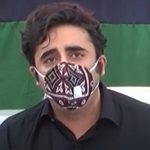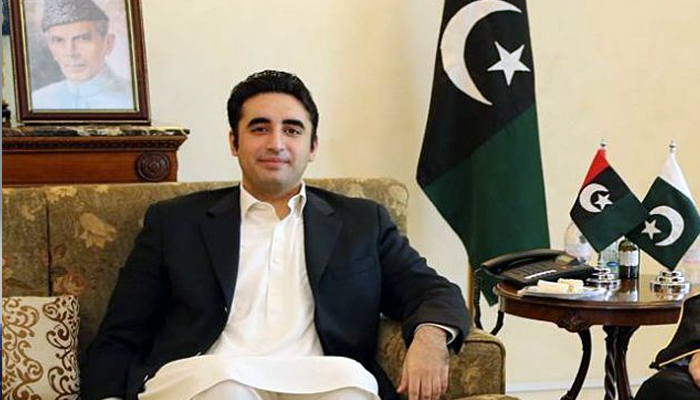In October, a 13-year-old Christian girl named Arzoo Raja was abducted as she played outside of her family’s home in Karachi, Pakistan. Arzoo’s parents reported the abduction to local police but were told two days later that their daughter had willingly converted to Islam and married their 44-year-old Muslim neighbor, Ali Azhar.
Since then, Arzoo’s case has made headlines in Pakistan and around the world.
Unfortunately, Arzoo’s case is not unique in Pakistan. According to a 2014 study by the Movement for Solidarity and Peace Pakistan, as many as 1,000 Christian and Hindu women and girls are abducted, forcefully married, and forcefully converted to Islam every year.
Many victims are minors taken from their families, sexually assaulted, married to an assailant, and held in captivity justified by falsified marriage and conversion documents. Violence and threats are used to compel victims to make statements in court supporting their captors.
Despite the odds stacked against them, some victims resist and escape to freedom. Reunited with their families, these survivors often have to go into hiding to maintain security.
International Christian Concern (ICC) recently interviewed one of these survivors to get a more in-depth view of abductions, forced marriages, and forced conversions in Pakistan. The details of the abduction, including names, have been changed or left out to maintain the survivor and her family’s security.
“I will never forget what I went through,” Maria Bibi told ICC. “Although I was able to rejoin my family after two months, the wounds of this inhuman act will stay with me until the last breath of my life.”
In early 2019, Maria, a 15-year-old Christian girl, was abducted from a relative’s house in Pakistan’s Punjab province by an adult Muslim man named Iqbal. After the abduction, Maria was raped multiple times over several weeks and kept in Iqbal’s custody.
Maria’s father filed a report with local police soon after the abduction. However, local police took more than a week to officially file a report and start the investigation into Maria’s disappearance.
After approximately a month in captivity, Iqbal took Maria to a mosque where she was told by three men she must recite the Islamic proclamation of faith. When she refused, the men beat her and forced her to place thumb impressions on several blank papers. The three men then performed a marriage ceremony and again forcefully put her thumb impression on a document used as a falsified marriage certificate.
The next day, Maria was taken to the local court. Before giving her statement, Iqbal told Maria that if she did not say she had converted to Islam and married him of her own free will, he would kill Maria’s parents and siblings. According to Maria, Iqbal made it seem like he already had some of her siblings in his custody.
In court, Maria gave into Iqbal’s threats. She claimed she was 20-years-old, converted to Islam, and married Iqbal of her own free will. The fake marriage certificate and conversion documents were submitted to the court, and Maria was renamed Ayesha.
With extraordinary bravely, however, Maria was eventually able to resist Iqbal and his threats. In a subsequent court hearing, Maria claimed that she was forcefully converted, forcefully married, raped, and abducted by Iqbal.
Within a week, Maria’s new testimony was recorded in front of a judge, and police were ordered to investigate the claims of forced marriage and forced conversion. However, even though the marriage and conversion were in doubt, Maria remained in Iqbal’s custody.
Police attempted to interview Iqbal, but he and his family fled, leaving Maria locked in a room in their house. Maria was eventually rescued by neighbors who broke into the locked room after hearing her cries for help.
Free, Maria called her parents. She was soon reunited with them and taken into protective custody by local police.
After more than two months in captivity, the Lahore High Court found that Maria was abducted, forcefully married, and forcefully converted. The court went on to order that Maria return to her parents and that Iqbal be arrested.
Since gaining her freedom, Maria and her family have lived in hiding. They have changed where they live, their phone numbers, and even the names they use in public. The family faces continuous threats from Iqbal’s relatives and supporters, claiming that Maria should be reunited with Iqbal and not stay with a Christian family.
“This should not happen to a girl of any caste or creed,” Maria shared with ICC. “There should be a law in Pakistan that protects girls from religious minority communities.”
“Kidnapping girls, abusing and converting them against their will is like the law of the jungle,” Maria continued. “The kidnappers are misusing religion for their pleasure. The authorities must protect religious minorities, and there must be a campaign or orientation session for police to learn how to deal with these cases without bias.”
Since Maria has returned to her family, dozens of similar incidents have been reported by Christians across Pakistan. Famous cases like that of Maira Shehbaz, Huma Younas, and Arzoo Raja have dominated headlines in Pakistan for months. As Maria suggests, more decisive action must be taken by authorities in Pakistan to curb this abuse. Until this is done, abductions, forced marriages and forced conversions will continue to be perpetrated against the country’s young and vulnerable.
https://www.persecution.org/2020/11/17/christian-teen-shares-survivors-testimony-abduction-forced-marriage-pakistan/

